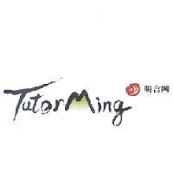INDUSTRIA
DE DISENO TEXTIL, S.A. (“IDT”), the registrant of trademark no. 01595432 (ZARA), 01520397 (ZARA HOME),
01483363 (ZARA BASIC), and 01406674 (ZARA) (all see below), successfully contested the registration of
trademark “ZORA” in opposition proceeding, convincing Taiwan’s IP Office (“TIPO”)
that the contested trademark will cause confusion and should be canceled.
l Background:
The
contested trademark, “ZORA” (no. 02152721, see below), was filed by HON TU
INTERNATIONAL. CO., LTD (“HTI”) on October 16, 2020, and granted on July 1, 2021,
designating for use in goods and services under class 3 (e.g., facial cream,
body lotion, skin care cream, cosmetics, etc.), class 5 (e.g., mineral
nutritional supplements, protein nutritional supplements, vitamin supplements,
etc.), and class 35 (e.g., retails service for cosmetics, food, and nutritional
supplement).
l TIPO’s decision:
TIPO found in IDT’s favor on July 31, 2023, determining that registration of the contested trademark violates Article 30.1.10 of Trademark Act, which provides that a mark shall not be registered if such a mark is “identical with or similar to another person’s registered trademark or earlier filed trademark and to be applied for goods or services identical with or similar to those for which the registered trademark is protected or the earlier filed trademark is designated, and hence there exists a likelihood of confusion on relevant consumers.”
l Reasons held by TIPO:
1.
TIPO
finds HTI’s “ZORA” similar with IDT’s above cited trademarks. Although there
are other word elements, such as “nature”, “home”, and “basic” presented, such
additional elements are all ordinary words that are not distinctive. Therefore,
consumers would consider “ZORA” and “ZARA” the dominant portions, and find the two
verbally and visually similar with each other.
2.
HTI
argued that “ZORA” is applied for use in cosmetics, and nutritional supplements,
and IDT’s “ZARA” is used on apparel product. The products represented by the
contested trademark should be dissimilar with those by IDT’s cited trademarks.
TIPO disagrees, and reasons that determination on similarity under Article
30.1.10 should be based on the specific class of product identified in the
trademark registration, not on the product on which the trademark is actually applied.
Here, TIPO finds IDT’s cited trademarks are also designated for use in similar cosmetic,
nutritional, and personal hygiene products, including baby food, medical
nutrition, perfume, cosmetics, shampoo, facial cream, etc. Based on the class
of products designated by IDT’s trademark registration and those designated by
HTI’s contested trademark, consumers would find similarity since both serve
similar function or purpose.
3.
TIPO
acknowledges that “ZORA” has been used in cosmetic products and has established
certain degree of brand recognition among the consumers. However, TIPO also
notes that “ZARA” is highly distinctive, and consumers are familiar with such
brand. Evidence of trademark use submitted by HTI is not sufficient to prove
that “ZORA” has been famous enough so that consumers could distinguish HTI’s “ZORA”
from IDT’s “ZARA”.
4.
In
light of the above, given that “ZORA” is highly similar with “ZARA”, that “ZORA”
is designated for use in similar goods and services, that consumers are familiar
with “ZARA”, and the fact that “ZARA” is highly distinctive, TIPO concludes that
HTI’s contested trademark may cause confusion among the relevant consumers, and
thus should be canceled according to Article 30.1.10 of Trademark Act.
Source:

























.jpeg)




